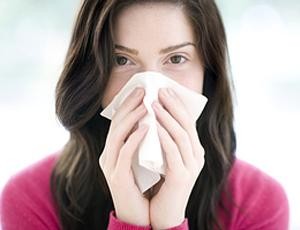Allergies are among the most common chronic conditions worldwide. Allergy symptoms range from making you miserable to putting you at risk for life-threatening reactions.
According to the leading experts in allergy, an allergic reaction begins in the immune system. Our immune system protects us from invading organisms that can cause illness. If you have an allergy, your immune system mistakes an otherwise harmless substance as an invader. This substance is called an allergen. The immune system overreacts to the allergen by producing Immunoglobulin E (IgE) antibodies. These antibodies travel to cells that release histamine and other chemicals, causing an allergic reaction.
1. Ditch the Carpeting
It may feel cushy underfoot, but carpet—especially in the bedroom where we spend eight-plus hours a night—can be a haven for dust mites. Worse, if it's been installed over concrete, carpeting can interfere with the evaporation of moisture, which also contributes to dust mites and mold, says James L.Sublett, M.D., chair of the American College of Allergy, Asthma and Immunology (ACAAI) Indoor Environment Committee. "Both thrive in high levels of humidity," he says. And both are common allergens. To discourage them, opt for bare floors or area rugs.
2. Don't Let Pets Sleep with You
As much as you (or your kids) want to sleep with the family cat or dog, the experts say skip it. Snuggling up with all that fur (and dander—dried skin, hair, and saliva—which is the real allergen) can cause sniffles even in folks who aren't highly allergic. What's the difference between an allergy and a cold? It's a good bet your child is allergic to your pet if he or she sneezes and has a runny nose for three weeks or more, says William Calhoun, M.D., director of allergy, pulmonary, immunology, critical care and sleep at the University of Texas Medical Branch at Galveston.
3. Rethink Your Houseplants
As much as your indoor plants cheered you up during the dreary winter, spring is a good time to put them outside. That's because houseplants can be surprisingly irritating. The culprit is mold spores that live in the warm and wet dirt, says Allen Seiden, M.D., professor of otolaryngology at the University of Cincinnati. If you just can't part with that collection of Peace Lily plants, make sure to avoid overwatering them to keep mold away. And keep an eye out for rotten leaves that can be a sign of overwatering or disease. FYI: Fake or silk plants aren't good substitutes—they're notorious dust collectors.
4. Run Your Air Conditioner
It may sound counterintuitive, but running your air conditioner (so long as your filter is clean) is a great way to prevent pollen from entering your house, which is what happens when you throw open your windows. "Air conditioners also benefit allergy sufferers by reducing the humidity in the house," says Heather Solos, author of Home-Ec 101: Skills for Everyday Living. "If you can't use your air conditioner, at least close the windows until the afternoon. Morning is when pollen counts are often highest," she says. And avoid using a fan. It just ends up blowing pollen around the room.
5. Scout Your Bathroom
You probably know "that green stuff that forms in your bathtub gives off spores that get sent into the air," says Dr. Seiden. The result: sneezing, wheezing, and other allergic reactions. Scrubbing the tub with a combo of one cup of bleach to a gallon of water (or a purchased cleaner) will remove the mildew. But don't forget to look elsewhere, too. For example: the bottom of the bathmat you step on every day when exiting the shower can be a culprit. Being constantly damp can encourage mildew. After using, hang the bathmat over the shower rod to let it dry, and wash it weekly.
6. Exercise Later
If all those gorgeously flowering plants and trees are making your nose feel all itchy, runny, and stuffy, consider shifting your morning workout to an after-work jog. Early morning (between 5 a.m. and 10 a.m.) is prime time for the highest pollen counts, says Tanya Altmann, M.D., a pediatrician in Los Angeles. Another smart move: if you have pollen allergies, keep your car windows closed during your morning carpool or commute to work.
7. Leave Your Shoes at the Door
Your favorite spring wedges might be what's tracking pollutants, allergens, and toxins into your home, says Myron Wentz, Ph.D., a microbiologist and author of The Healthy Home. To keep those spores out of your living space, wipe your shoes briskly on a mat and then park them in the foyer, garage, or laundry room. If your family members are highly allergic, consider leaving outerwear in the garage, too, not hung up in the closet where pollen can spread to other coats.
8. De-Fluff Your Living Room
If allergies plague you, it might be time to ditch the upholstered furniture in favor of leather, Solos says. "When you have upholstered furniture, skin cells, animal dander, and dust can easily get trapped in the fibers." Cleanup bonus: Leather and vinyl furniture is easily spiffed up with a quick wiping using a damp cloth. If replacing your furniture isn't in the cards, ditch the fluffy throws and pillows (also dust-mite catchers) for the season and keep dust-catching knickknacks to a minimum.






















































